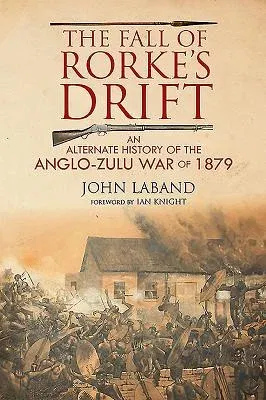It is January 1879, and the British Empire and the Zulu Kingdom are at
war. Lord Carnarvon, Secretary of State for the Colonies, who had
successfully brought about federation in Canada in 1867, had believed a
similar scheme would work in South Africa. But such plans are rejected
by Boer leaders. Lord Chelmsford leads a British military expeditionary
force to enter the Zulu Kingdom uninvited. A bloody battle ensues on 22
January 1879 at Isandlwana. The Zulus are the unexpected victors.
After that brutal defeat, the British Army are at Rorke's Drift on the
Buffalo River in Natal Province, South Africa. A few hundred British and
colonial troops led by Lieutenants John Chard of the Royal Engineers and
Gonville Bromhead face the might of the Zulu army of thousands led by
Prince Dabulamanzi kaMpande (CORR). Against the odds the British are
victorious and this defeat marks the end of the Zulu nation's dominance
of the region.
The Defence of Rorke's Drift would go down in history as an iconic
British Empire Battle and inspired Victorian Britain. Eleven Victoria
Crosses were awarded to military personnel. But what if the Zulus had
defeated the British at Rorke's Drift and invaded Natal?
In the first ever alternate history of the Anglo-Zulu War, historian
John Laband asks that question. With his vast knowledge of the
Anglo-Zulu War he turns history on its head and offers a tantalizing
glimpse of a very different outcome weaving a compelling and
never-before told story of what could have been.

